During the Communist era in Bulgaria, the annual May Day parade was a major spectacle that drew huge crowds to the streets of Sofia. The crowds would come to 9th September Square and see their Communist Party leaders lined up on the balcony of the massive mausoleum for Georgi Dimitrov, the first Communist leader of Bulgaria who led the nation from 1946 to 1949. The leaders would salute the soldiers and others marching in the parade and wave to the masses. But in 1986, the assembled people of Sophia were puzzled. Where did the leaders go? The balcony was empty. This only happened once during the 43 years of Communist rule. What caused their strange disappearance on May 1, 1986?
The mystery was due to two things: first, very effective government censorship and second, the nuclear reactor accident in Chernobyl, Ukraine, less than 700 miles away. The Chernobyl disaster raised legitimate concerns that some of the released radioactive material would be passing over Bulgaria and contaminating the air or rainfall. The Party officials, of course, simply skipped the May Day parade and were were safely sequestered indoors as the people were outside celebrating without being bothered by news of the Soviet Union’s embarrassing disaster. To me, it helps illustrate some of the dangers and perverseness of censorship. Government censorship, in my opinion, is not really about helping or protecting the people, but protecting the power of those in charge and manipulating their subjects.
This episode in Bulgarian history was related to me by an outstanding tour guide, Nikola, during a highlight of my recent visit to Bulgaria during the “Communist Tour” provided by the 365Association (related to FreeSofiaTour.com and bookable via that website, though the Communist Tour is not free but worth ever lev of its very low price). Our Bulgarian tour guide, also a musician who has performed across Europe, co-founded this tour to fill a large unmet need in Bulgaria, where surprisingly little information is available to students and tourists about the controversial history of Bulgarian Communism. He has done primary research on the way Communism affected people’s lives and how it operated. Over the course of about 3 hours in Sofia, he took us and about 20 other people to numerous sites where he shared stories to give us a feel for how Communism rose and fell, and what it meant for those who liked it and for those who hated it. As America now struggles with the tension between free speech and government’s growing desire to “protect” the masses from “disinformation,” some of Bulgaria’s lessons (as well as lessons from the Soviet Union, China, Venezuela, Cuba, etc.) might be worth considering. One of those lessons is that when government assumes the right to control information, it’s not just freedom of speech that is at risk, but also religious liberty. Bulgaria discovered this during the Communist era. After centuries of Muslims and Christians getting along in many communities in Bulgaria
When governments become so powerful and so disrespectful of the citizens they supposedly represent that they dare to censor the information they can receive or share, what follows can include preventing the spread of religious information they don’t like, or even engaging in outright harassment of religious groups they don’t like. Freedom of speech needs to be a concern for those who care about religious freedom. In my view, it’s time for Americans to speak out against government efforts to increase censorship.
We loved Nikola’s passion for history and the extensive research he has done, allowing him to answer difficult questions with solid information and even more stories. He has material that could make a book or documentary. Some of the information is troubling, such as discovering the sites of many dozens of locations where citizens were detained for questioning or worse. In the photo below, Nikola is showing us a map of these sites in Bulgaria as he stands in front of a door leading to an underground complex where many citizens were detained and often beaten. In the photo following that, you can see the memorial we saw toward the end of the tour that lists the names of over 20,000 victims of Communism in Bulgaria. Many lost their lives, sometimes with great cruelty, when the totalitarians of Bulgaria suspected them of opposing their rule. No trials were needed, no due process was required, to snatch people in the middle of the night or anytime for questioning and cruelty to force a confession or carry out lengthy punishment or execution. Possibly modeled after the Vietnam War Memorial in the US, the Bulgarian memorial is meant to remind us of ugly events, measured in human lives and human pain, that must not be forgotten.
Still, the area of Communism achieved some positive things. Improved job equality for women was one and greatly expanded literacy through focused government programs. The era that followed, still led by many of the same people leading the country during the Communist era, suffered from economic instability with hyperinflation and corruption. So simply not being Communist is not enough to make a country flourish. The nation remains somewhat divided when it comes to judging Communism. From his own family’s experience, our tour guide knows how sensitive the topic of Communism is. One grandmother was fond of Communism and the sense of security it gave her, especially in light of the chaos of hyperinflation that came after the fall of Communism. But his other grandmother could never forget the brutality of Communism, after having her own father be dragged away for unknown reasons by the regime where he was treated cruelly for 18 months. He refused to even talk about what had happened when he was finally released for it was so awful. When the two grandmothers were both present at family gatherings, there was always some tension whenever politics came up. Sensitivity to such feelings among Bulgarians is one reason why the Communism Tour seeks to present both the the positive and the negative sides of the Communist era.
Even with deference to the pro-Communist sentiment that remains in Bulgaria, it’s impossible to gloss over what happened. In addition to the thousands killed, tortured, or detained, beginning in 1984 the Bulgarian Communist dictator decided it was time to “unify” Bulgaria instead of having the diverse communities that had managed to get along relatively well for decades if not centuries in some parts of the country. Thus, it was time to crack down on the many Muslims living there. The dramatic changes beginning at that time are reported in “Words matter. Bulgaria and the 30th anniversary of the largest ethnic cleansing in cold war Europe” by Tomasz Kamusella in New Eastern Europe, February 25, 2019:
In the summer of 1989, between May 30th and August 22nd, communist Bulgaria, led by the dictator of three decades and a half, Todor Zhivkov, unilaterally expelled 360,000 Bulgarian citizens to neighbouring Turkey. The expellees belonged to this country’s Turkish minority of over one million, who officially had been declared non-existent in 1985. Bulgaria was posed as a completely homogenous nation-state, without any non-Bulgarian minorities. The ethnonym “Turks” was banned from the press or any official use. However, the code term “Bulgarian Muslims” was retained for referring to Bulgaria’s Turks. The authorities kept tabs on this minority and knew well who was a Turk, despite the country’s Constitution of 1971, which prohibited any discrimination on racial, ethnic (national) or religious grounds (Article 35.4).
The last act of achieving such an ethnolinguistically and ethnoreligiously homogenous Bulgaria was the forced assimilation campaign of late 1984 and early 1985. As a result of this brutal and heavily militarised action, the “Islamo-Arabic” names of 800,000 people were Bulgarianised, that is, replaced with Slavic and Christian names, seen as “Bulgarian.” Widespread protests involving some 15,000 demonstrators were summarily suppressed and the notorious Belene concentration camp on the eponymous island in the Danube reopened for the incarcerated “ringleaders”.
Governments of all kinds can become racist and cruel, but increased power in the hands of one cruel man can be unstoppable. Freedom and limited government is more likely to lead to protection of individual rights and put limits on the harm that a few corrupt men can inflict on minorities or on everyone. As cries for creased censorship abound in our country, this might be a good time to speak out on the virtues of liberty, free speech, and, of course, it’s sister, freedom of religion.
If you are lucky enough to visit Bulgaria, please consider the Communist Tour. A highlight among many wonderful highlights in this free, beautiful, and delicious nation. I’ll share more later, but here’s a photo of one of the great religious edifices in Europe, the St. Alexander Nevsky Cathedral in downtown Sofia, which was just a short walk away from where we stayed with a good friend. During our visit there, we attended a portion of a religious service where the choir, singing from a small balcony, filled cathedral with the most beautiful, angelic voices I can recall. The acoustics are marvelous.
P.S. – If I’ve made any obvious blunders in reporting events in Bulgaria, blame me and my poor notes rather than the Communism Tour. I would also welcome any recollections on time spent in Bulgaria. I was truly delighted with what I encountered there, from the streets of Sophia to the mountains of Rilla and some small villages along the way. Great people, a good degree of religious freedom, beautiful views, and delicious but inexpensive food.
.

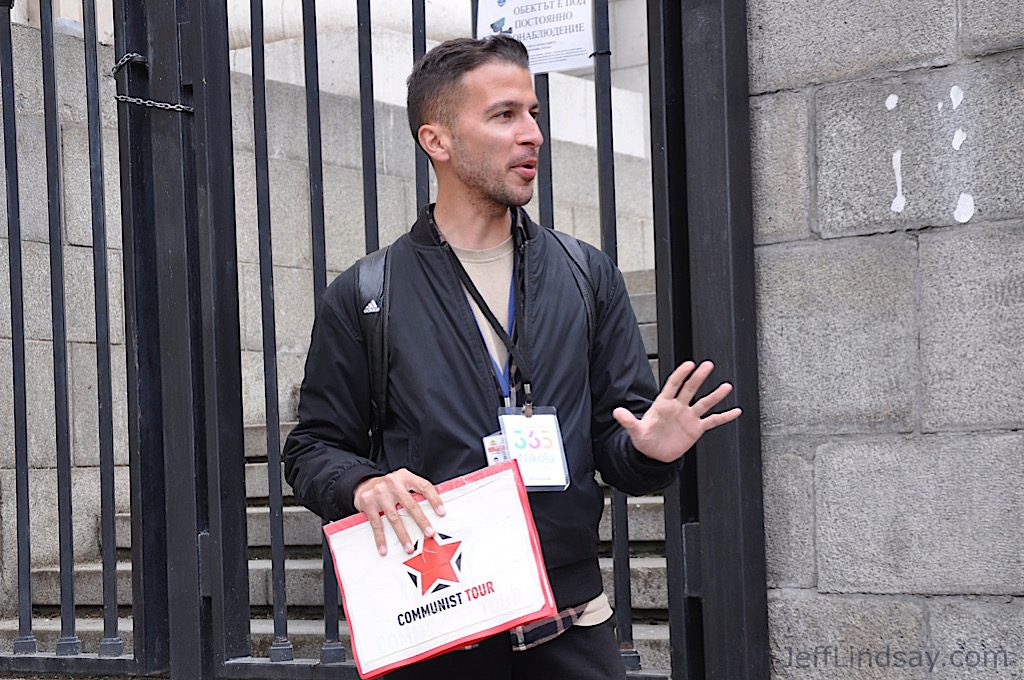
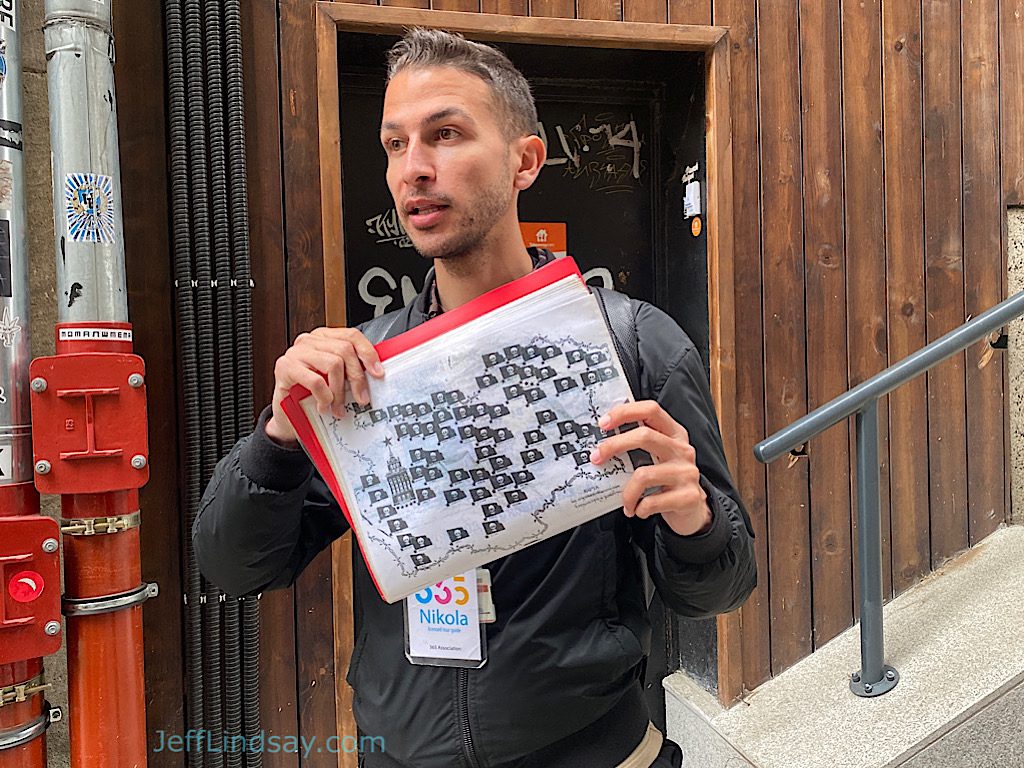
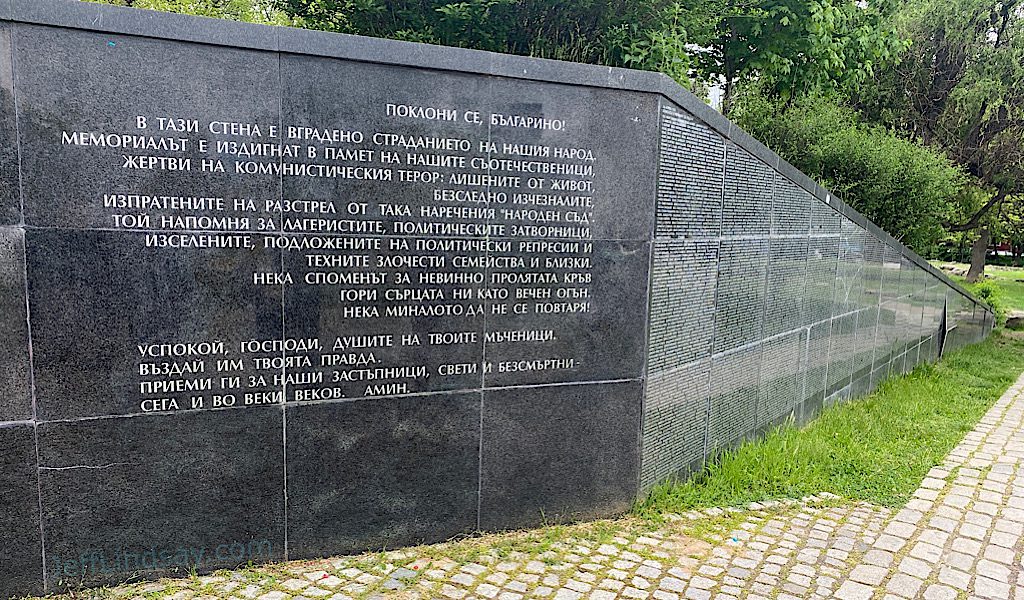


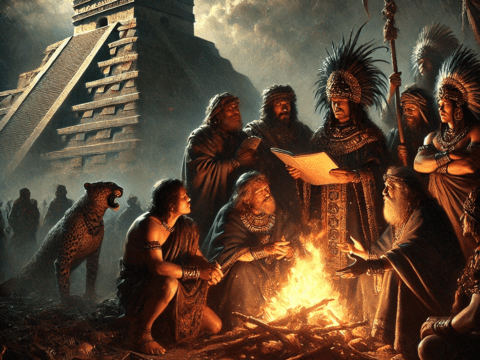
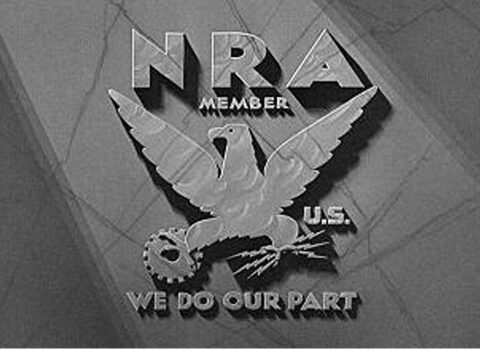







I totally agree about the dangers of government censorship. But I'm curious about the "cries for [in]creased censorship" that you say "abound in our country." I'm familiar with the controversy over social media content moderation, Trump getting booted off Twitter, etc., but such moderation is just private companies exercising their First Amendment right to choose for themselves what they will and will not publish. Can you give any examples of people clamoring for increased censorship by the government?
— OK
Ask and you shall receive.
https://www.state.gov/disarming-disinformation/
The government deciding what information is good, bad, or relevant for its citizenry is disturbing.
Anon 9:16, I went to the site you linked and found zero evidence of government censorship.
— OK
Then you’re not as good at reading as I had assumed.
How about this one?
https://thehill.com/changing-america/respect/diversity-inclusion/589667-school-board-member-who-called-for-burning-of/
Anon 8:56, instead of just pasting in a link to a big, sprawling site with dozens of articles comprising thousands and thousands of words, perhaps you could do us the courtesy of citing the actual evidence you found on that site?
Can you give us an actual quote, or some other evidence, from the State Department's "Disarming Disinformation" site that shows the government is engaging in censorship?
What I see is the government putting out its version of events, which I suppose one could call propaganda, but of course propaganda is not the same thing as censorship.
— OK
Anon 9:02, thanks for an example of genuine government censorship, or at least potential censorship.
For those who want to know: Anon 9:02's example is a school board in Virginia that is now chaired by a guy who previously advocated book burning. (I'm calling it an example of "potential censorship" because, while the censorship seems pretty likely to happen, it hasn't happened yet.)
For what it's worth, the book that seems to have provoked the new chairman's zeal is the YA (young adult) novel 33 Snowfish. I've read this book, and it's a well written but extremely graphic story about homeless teenagers. It contains lots of profanity and a fair amount of drug use and prostitution. I personally think it's appropriate for, say, ages 15 and up, but I can definitely understand why more conservative parents would want it off the library shelves.
There's also a question of just how public school book choices fit into the larger censorship debate, but I don't have time to get into that right now. Some other time, perhaps.
— OK
I'd guess that the kinds of censorship that is being discussed here is governments' willful prevention of factual information from being disseminated and probably not fictional literature that might have questionable moral relevance for the local community. Just because it is in print doesn't mean that it is fit for consumption.
Local school districts and community libraries engage in censorship. They decide what books are appropriate for the community that they serve and they stock their shelves with such books and don't stock their shelves with books that they feel are inappropriate for the community.
Steve
Yes, Steve, I agree that the kind of censorship discussed in Jeff's post is "governments' willful prevention of factual information from being disseminated."
And I ask again: can anyone provide an example of our own government currently engaging in such censorship? I'm not seeing this happening, but I'm open to looking at any evidence.
— OK
OK – the answer is a resounding "NO!" Jeff just presents the issues, wrings his hands, and walks away. As usual.
Sorry, OK, I've been away for a couple of weeks without my computer and inadequate time or Internet access to do much with the portable device I brought. Just got yesterday. Since you are someone who I believe stays in touch with current events, you surprise me with your question. The calls for increased censorship are not coming from private companies acting on their own, but from the government in various ways. The most notable example in the past month may be the rather Orwellian creation of a Ministry of Truth, though branded as the "Disinformation Governing Board" created within the Department of Homeland Security. Did you not notice this?
In the best Orwellian form possible, the board is being headed by a champion of censorship and pro-regime propaganda, Nina Jankowicz. Here is an excerpt from Lev Golinkin, "Meet the Head of Biden's New 'Disinformation Governing Board'," The Nation, May 12, 2022:
Jankowicz’s experience as a disinformation warrior includes her work with StopFake, a US government-funded “anti-disinformation” organization founded in March 2014 and lauded as a model of how to combat Kremlin lies. Four years later, StopFake began aggressively whitewashing two Ukrainian neo-Nazi groups with a long track record of violence, including war crimes.
Today, StopFake is an official Facebook fact-checking partner, which gives it the power to censor news, while Jankowicz is America’s disinformation czar.
This followed President Obama's speech at Stanford calling for more control of social media in the name of fighting "disinformation" — a vague term that is widely used to mean information that someone in power doesn't like. Jankowicz is calling for verified Twitter users to be able to edit the Tweets of others when they are deemed "misleading."
As an ardent pro-Biden advocate, you may not be willing to admit what is easy even for many living in other nations to see: the American media and Big Tech are working closely with the Biden administration to further government agendas and censor things they don't like. The CDC, for example, has admitted that it is working with media groups to flag information for censorship. Many things that were branded "disinformation" about COVID have turned out to have merit. Letting information be controlled by government agencies in bed with big pharma and others with huge financial interests is a form of censorship that can have serious adverse effects on the "science" that we are supposedly following and on the quality of information we get regarding our health. Suppressing free discourse and inquiry is anti-science and anti-American.
What is disinformation? The standard seems to be information that the government doesn't like. Right before our recent presidential election, when the story about Hunter Biden's laptop came out, the media joined forces with intelligence agencies in the US government to declare that the account was "Russian disinformation" and then actively censored the story and anyone who tried to share it. A major US newspaper, the NY Post, was banned from Twitter and punished broadly on other social media, and many Americans were confident that the story was a nothing burger. Many months later, the New York Times quietly admitted that the story was real — but without apologies. It was classic government censorship, working with the media to control what information we get, and you continue to excuse this abuse because the groups the government leans on for censorship in the end are corporations. But they are doing the government's bidding. Mark Zuckerberg, for example, said that Facebook censored the Hunter Biden story because of alerts from the intelligence community about the risk of a big Russian disinformation story that was about to interfere with the election. Social media colluding with the Deep State to withhold accurate information from the public. I'm sure you have an end-justifies-the-means explanation as to why that's a good thing, but it's still censorship and something we need to oppose.
I'm aware of all that stuff, Jeff. Why do you keep bringing it up? None of it is government censorship. "Government censorship" is when the government censors something, or requires others to censor something. You still haven't given an example of that. You've given examples of private companies like Twitter using their First Amendment right to engage in censorship of their own platforms — examples that are completely irrelevant to the question of government censorship.
When the Nixon administration got a federal court to issue an injunction preventing the New York Times from publishing the Pentagon Papers, that was an example of government censorship.
When the government asks Facebook to censor certain covid claims, and Facebook chooses to honor that request, it is not an example of government censorship. It's an example of a private company deciding that it considers a government request to be reasonable and worth honoring. As long as there's no coercion involved, it's not government censorship.
This is not hard to understand.
Wake me up when the Biden administration goes to court to get an injunction requiring Facebook to stop publishing something.
— OK
OK, have you been to China by any chance? Do you also feel that they are free of government censorship? Nearly all educated Chinese people understand that censorship is pervasive and that it comes from the government. The know that if they say the wrong things online, their account might be frozen or their post deleted, or worse. They know that search results are censored and some topics blocked due to government censorship. They would laugh at you if you tried to tell them that the government's control of information is not censorship because the censored social media platforms like WeChat happen to be owned by private companies like Tencent (private as in not government owned, but also often "public" in the sense of being listed on a publicly traded stock market). Technically, the censorship is not done personally by a government official tapping a delete key all day long, but could be described as the government "requesting" censorship by private companies who then politely choose to comply to receive the benefits of compliance and avoid the consequences of non-compliance. But whatever the details of the mechanisms, it is government influence creating censorship of the major sources of information available to the people, which is predominantly via social media through Big Tech working hand-in-glove with government groups charged with eliminating "disinformation."
I am genuinely puzzled by your claim that the censorship of the Hunter Biden stories, of people sharing adverse effect data about vaccines or other information that doesn't fit the government's narrative, and the deplatforming of unliked people and institutions posing political threats to the government is all "just private companies exercising their First Amendment right to choose for themselves what they will and will not publish." You seem to miss the fact that social media have become much like common carriers and aren't just choosing what content to publish, but are dominant platforms for communication. Working with the government to control what can and can't be said to advance the government's political agenda goes way beyond the first amendment rights of the companies. It's not as simple as you state. For some of the nuance and the role of Section 230, see this article by the Federalist Society.
It is absoluting amazing to witness the human need to create bogeymen. We live in a time of unprecedented ability for the most common citizen to download a mass of information literally at their finger tips and even a random blogger can post their rants to anyone who will listen, even if the rant is about some imaginary bogeyman who is running around shutting everyone up.
Jeff, it would help if you would answer a couple of obvious questions raised by your statement that–
Technically, the censorship [in China] is not done personally by a government official tapping a delete key all day long, but could be described as the government "requesting" censorship by private companies who then politely choose to comply to receive the benefits of compliance and avoid the consequences of non-compliance.
Can you enlighten us about just what are the "consequences of noncompliance" that Facebook and Twitter will suffer here in the United States if they don't censor what the government wishes it to censor? And can you explain why Gab and Parler aren't suffering those consequences for their noncompliance?
— OK
OK – Jeff Bezo's Amazon literally had is 10 Billion dollar Pentagon contract take away from it and given to Microsoft because Trump did not what like Bezo's Washington Post was saying about Trump.
Anon @2:24, do you have sources for the nonsense you're spewing? I'm not attempting to censor, mind you, just curious where you hear such trash and why you believe it. Pony up with proof or delete your foolishness.
https://abcnews.go.com/Business/amazon-lost-10b-pentagon-contract-trumps-personal-vendetta/story?id=67606505
https://en.wikipedia.org/wiki/Joint_Enterprise_Defense_Infrastructure
OK, I am guessing that you haven't spent much time in Beijing, Shanghai, Moscow, or Washington DC, so it may come as a surprise to you that companies that are close to government officials and do their bidding tend to have a cozy relationship that brings benefits to them in return. Shocking, I know, but it's actually the way the world has worked for centuries. Those close to and favored by royalty or big government tend to reap benefits that the rest of us don't get, and also may avoid problems that the rest of us face. It's usually good to be a favored buddy of the king.
The consequences of non-compliance are probably primarily losing out on the benefits that come to those in the favored inside circle. Those benefits are often not visible, but not hard to figure out. They can range from an opportunity to influence policies, to have an inside track on upcoming changes that might affect one's business, added publicity and favor in the media, access to elite gatherings, sweet positions on boards or government councils, and a host of intangibles and some tangibles as well. Surprised? Of course, when a company irritates instead of ingratiates, more can happen than just missing out. One can suddenly face audits, regulatory pressures, bad publicity, pressure on business partners to turn away from you, increased taxes, and a host of other subtle or not-so-subtle punishments. But the fear of missing out on benefits is more than enough to motivate compliance.
Google and other Silicon Valley companies like Apple have received massive aid just in the intellectual property area with the changes in our IP system over the past decade, including putting a Google attorney over the USPTO in the Obama era and PTAB judges from Apple that helped influence decisions that, surprisingly, favored Apple and others in Silicon Valley. Amazon just got a $10 billion contract from the government. Microsoft is gaining big bucks from the Pentagon now.
So when Facebook acts as a government censorship tool, as Jen Psaki admitted, and when Facebook partnered with Fauci to protect Fauci's interests by censoring reports on the lab-leak theory, or when Facebook partnered with the establishment-infused Atlantic Council to advance their goals, was it just because Facebook was doing its best to make America better, or is there the possibility of benefit for Facebook or its leaders? Benefit for being a loyal supporter of the powerful — how could it be any other way?